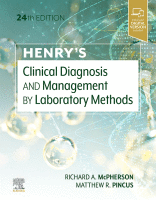Physical Address
304 North Cardinal St.
Dorchester Center, MA 02124

Key Points Hemapheresis is the process of removing normal or abnormal components from circulating blood. Cytapheresis involves the removal of cellular components; plasmapheresis involves the removal of plasma, the liquid component. Separation of the blood components is based on size…

Key Points Criteria for blood donor eligibility are established by the U.S. Food and Drug Administration (FDA) to minimize risks to both the donor and the transfusion recipient. Blood components (red blood cells, platelet concentrates, fresh frozen plasma, cryoprecipitate) are…

Key Points Blood group antigens play a variety of physiologic roles as membrane structures involved in maintaining erythrocyte cytoskeleton integrity, as well as in membrane transport, cell signaling, and immune complement regulation, and as receptors/modulators of disease. The ABO histo-blood…

Key Points Flow cytometry is a powerful, rapid, and cost-effective technique for the identification and monitoring of hematopoietic neoplasms. Successful implementation of flow cytometry requires careful attention to details of instrument and reagent performance. Normal hematopoietic cells are characterized by…

Key Points Leukocytes are regulated by complex homeostatic mechanisms that direct their responses to infection and inflammation. Leukocytosis often reflects an underlying abnormality; leukopenia, especially neutropenia, places a patient at risk for infection. Hematopoietic neoplasms have been categorized by a…

Key Points Anemia may result from decreased marrow production or shortened red cell survival. Nonmarrow diseases, such as endocrine, renal, and inflammatory disorders, significantly influence bone marrow function. Anemias associated with nutritional deficiencies may affect tissues other than the bone…

Key Points Hematopoietic stem cells are a rare population of cells in the adult bone marrow that sustains hematopoiesis and gives rise to all kinds of blood cells, including granulocytes, monocytes, lymphocytes, megakaryocytes, and erythrocytes. Differentiation and maturation of hematopoietic…

Key Points Assessment of erythrocyte, leukocyte, and platelet counts from manual and automated particle counters is central to the diagnosis and management of hematologic disease. With few exceptions, manual methods have been replaced by automated hematology analyzers. The selection of…

Key Points Cerebrospinal fluid is an essential part of a neurologic examination, comprising special attention to cell counts, basic chemical analyses, and microbiological cultures with specific antibody titers. Determining the etiologic cause of fluid accumulation in various body cavities (synovial…

Key Points Many different diseases can display abnormalities in the urine. Therefore, examination of the urine is an important laboratory function. Basic urinalysis consists of gross examination of the urine as well as a dipstick analysis for blood, white blood…